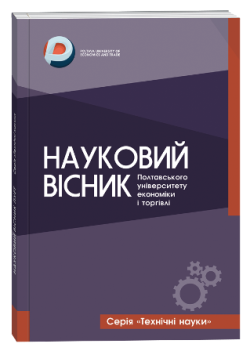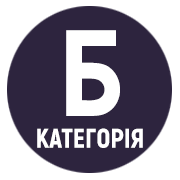STUDY OF THE BENDING STRENGTH OF THERMAL INSULATION MATERIALS BASED ON VEGETABLE RAW MATERIALS
Abstract
The increase in energy prices in Ukraine forces more and more households to invest in energy-saving houses, apartments and other premises. The market of thermal insulation materials in Ukraine continues to show positive growth rates, the main factors that will affect this market include: the growth of the real estate market, the level of purchasing power, "warm loans". Plant-based raw materials have a number of advantages, such as availability, rapid recovery, low cost, environmental friendliness and low thermal conductivity, as well as the possibility of using both organic and inorganic binders. Object and subject of research. Basic physical and mechanical properties (flexural strength) of thermal insulation materials based on natural raw materials. Used research methods and equipment, research organization. Analytical and experimental methods of determining the bending strength of heat-insulating material; a method of comparing the results of bending strength calculations by different methods. The development of thermal insulation materials using plant raw materials is an urgent task of modern construction industry. The obtained materials meet the requirements of sustainable development, energy efficiency, economy and environmental friendliness. The article proposes a method of systematization of materials on a composite basis of moss and straw compared to a one-component composition and the composition of a mixture of moss and reed. It is based on literature data and available research. Analytical and systematic data processing methods were used during the research. The main physical and mechanical properties of heat-insulating plates – bending strength – were determined in accordance with DSTU B V.2.7-38-95 Heat-insulating materials and products. Test methods [2]. It has been theoretically substantiated and experimentally confirmed that the high physical and mechanical characteristics of the heat-insulating material are due to the formation of a spatial frame system made of straw tubes with the void space filled with compacted moss, as well as a fine mesh microstructure of moss and rye straw. The possibility of a significant increase in the bending strength of heat-insulating material based on a composite basis of moss and straw compared to the single-component composition and the composition of a mixture of moss and reeds was determined. Thus, the average bending strength of moss and straw composites is 0.26 MPa, which is 1.9 times greater than that of the composite composition based on moss and reeds, and 3.2 times higher than the value of the single-component samples.
References
2. ДСТУ Б ГОСТ 16381: 2011. Матеріали і вироби будівельні теплоізоляційні. Класифікація і загальні технічні вимоги: [Чинний від 01.12.2012]. К.: Мінрегіон України, 2011. 81 с.
3. ДСТУ Б В.2.7-38-95. Матеріали і вироби теплоізоляційні. Методи випробувань (ГОСТ 17171-94). [Чинний від 1996-09-01]. Київ, 1995. 66 с.
4. Дудла І.О., Голодюк Г.І., Гургула Н.М. Дослідження теплоізоляційних матеріалів на основі рослинної сировини на міцність. Товарознавчий вісник. 2022 Вип. 1(15). С 176-183. https://doi.org/10.36910/6775-2310-5283-2022-15-16.
5. Пушкарьовa К.К. Сучасні українські будівельні матеріали, вироби та конструкції. Київ : Асоціація «ВСВБМВ». 2012. 664 с.
6. Якісна Теплоізоляція. Принципи інтегрованого термічного захисту. URL: http://passivehouse-igua.com/passivehouse/passive-house-integrated-thermal-protection/ (дата звернення: 10.02.2023).
7. Interaction of Mineral and Polymer Fibers with Cement Stone and theirEffect on the Physical-Mechanical Properties of Cement Composites / A.A. Plugin T.O. Kostiuk, O.A. Plugin, D.O. Bondarenko,Yu.A. Sukhanova, N.N. Partala // International Journal of Engineering Research in Africa JERA. 2017. Vol. 31. P.59-68.
8. Demina О.І. Interaction of Portland cement hydration products with complex chemical additives containing fiberglass in moisture-proof cement compositions / O.I. Demina, A.A. Plugin, E.B. Dedenyova, D.O. Bondarenko, T.A. Kostuk // Functional Materials, 24, No.3 (2017), p. 415-419.
9. Influence of complex chemical additives on the water resistant silicate materials / O. Hryhorenko, A. Lobanova, I. Kazimagomedov, K. Plakhotnikov. MATEC Web Conf. Published online: 10 July 2017. 116 (2017) Scopus. DOI: https://doi.org/10.1051/matecconf/201711601005.
10. Будівельні та теплоізоляційні матеріали навчальний посібник / Т. В. Котова, Н. Е. Погребна. Дніпро: УДУНТ, 2022. 58 с.


